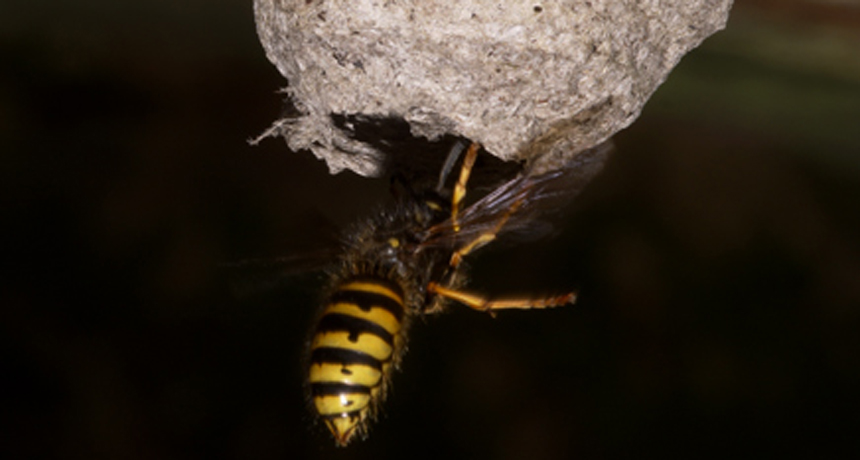Insect queens sterilize workers with similar chemical

A queen wasp returns to her nest. She and other queen ants and bees release similar chemicals to keep their workers sterile.
Wikimedia Commons

A queen wasp returns to her nest. She and other queen ants and bees release similar chemicals to keep their workers sterile.
Wikimedia Commons